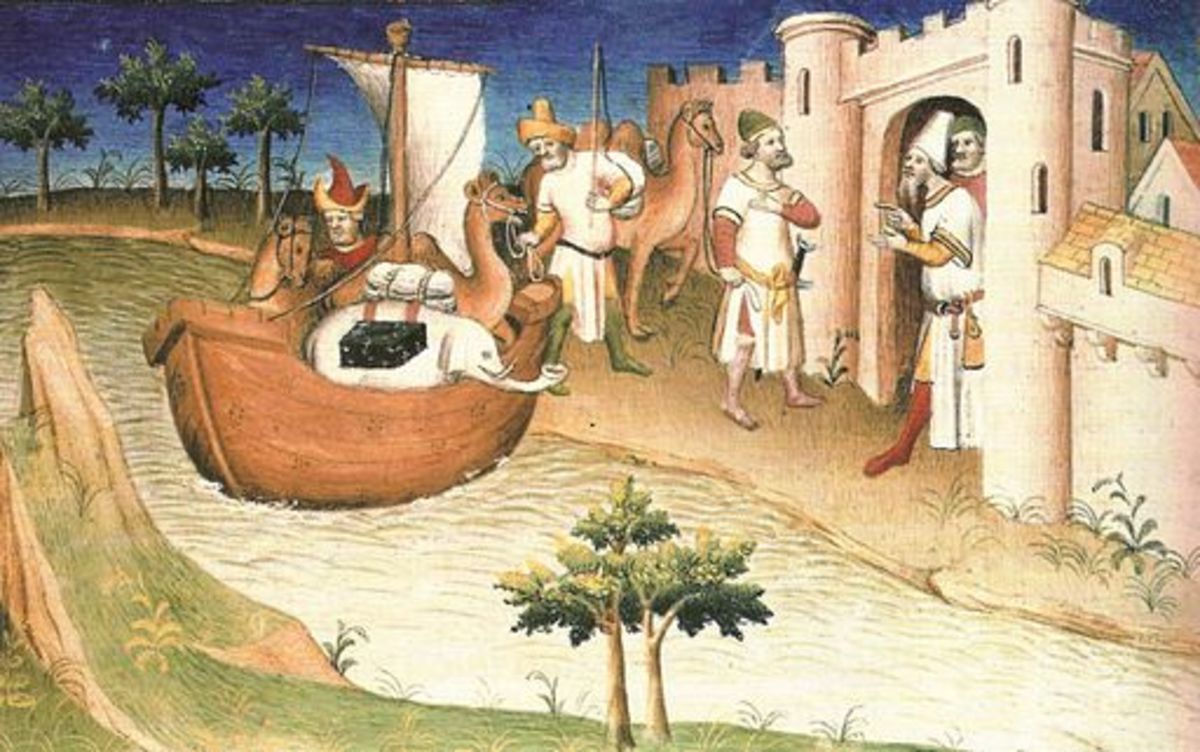
Pasta, in its various forms, has been a
mainstay of the Italian diet since the Middle Ages. However, it is known that
the Chinese had been eating noodles, a closely related foodstuff, for thousands
of years prior to that. Could it be that the Italians learned about pasta from
the Chinese?
Pasta - the Marco Polo connection
The Venetian explorer Marco Polo returned
from more than twenty years of travel in the Far East in 1295, so could this be
the connection? Did pasta reach Italy from China thanks to Marco Polo? It
sounds like a highly plausible story.
In 1929 an article appeared in the “Macaroni
Journal”, which was an official publication of the National Pasta Association
of the United States. This article, entitled “A Saga of Catai”, purported to
tell the full story.
It appears that an Italian sailor on the
ship that brought Marco Polo home from China had met a beautiful Chinese girl
who was making noodles. She offered some to him, which he tasted and found to
be delicious. He asked if he could take some of the noodles back to his ship so
that he could show them to Marco Polo and the rest, as they say, is history.
On the other hand …
Unfortunately, however, the rest is not
history but pure bunkum. For one thing, the story includes Marco Polo naming
this new dish after the enterprising sailor, whose name was Spaghetti. Given
that “spaghetti” is a variant of the Italian for “thin string”, this derivation
is highly unlikely.
There is another excellent reason why the
story, attractive though it may be, should not be given much credence. This is
that pasta was being eaten in Italy long before Marco Polo turned up with his
traveller’s tales. There is a record dating from 1154 to the effect that pasta
was being made at that date in Sicily. It is also known that soldiers in the 13th
century carried pasta as part of their food rations. If Marco Polo did, by some
happy coincidence, happen to bring some noodles back with him from China to
Italy, they had nothing to do with introducing something new in the food line,
because pasta was on the menu in Italy long before he started off on his
journey in 1271.
Whether the author of the “Macaroni
Journal” article was being serious in his claim or not is a debatable point,
but the fact remains that it acquired a patina of reliability about it. After
all, if the National Pasta Association did not know where their product
originated, who did? It seemed to be the sort of story that could easily be
true and so, as it spread beyond the limited confines of the pasta trade into
the outside world, it was taken by many people to be absolutely true.
So what is the origin of pasta?
If pasta did not originate in Italy, and it
was not introduced by Signor Spaghetti and his boss Marco Polo, then where did
it come from? There are various mentions of products made from dried sheets of
dough from as far back as the 5th century, with the Arabs apparently
being their first users. When Arabs from Libya invaded Sicily in the 7th
century they apparently brought durum wheat with them, this being the most
suitable wheat type from which to make pasta. It could be that it was at this
time that pasta production began in Sicily, thus making it several hundred
years older than the 1154 date noted above.
In any event, one thing that can be taken
as being beyond the shadow of a doubt is that Marco Polo had nothing to do with
it.
© John Welford
No comments:
Post a Comment